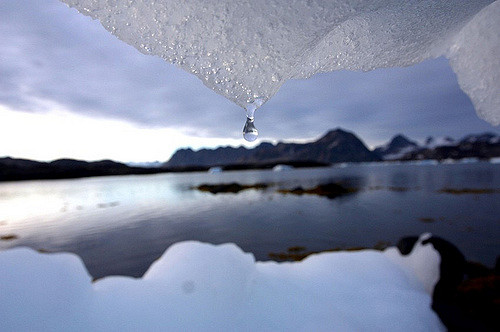 Flickr User: Klem@s
Flickr User: Klem@s
The Paris Agreement Is Heating Up
The historic Paris climate agreement comes into effect on November 4th. The agreement has the potential to alter the future of our world; moving us away from our current trajectory toward dangerous climate change. This is a great step forward but progress should not be taken for granted. Action is not guaranteed and the holiday season has the potential to slow momentum. So what potential does this agreement have once it goes into effect? And what’s left to be done?
Potential of the Paris Agreement
Compared to the legally binding Kyoto Protocol treaty, the Paris Agreement offers new hope as a more flexible and inclusive agreement (including the U.S. and removing some of the more dividing language over “developed” versus “developing”). There is concern that as a non-legally binding agreement without any oversight, the world is leaving too much to the ambition of individual nations. The Nationally Determined Contributions (NDCs) do provide a base for lowering projected warming by 1 degree Celsius. The challenge of the agreement is the noted need for further action beyond the NDCs to stay below 2 degrees. This “further action” is left to the discretion of the nations, leaving a potential gap between needed cuts and actual results. The key to bridging this gap are the 5 Year Reviews and a process of “ratcheting”. These reviews provide countries a chance to reassess their goals and to “ratchet”, producing more ambitious INDCs (Intended Nationally Determined Contributions) based on a scientific review of the state of the planet.
At the same time, legally binding agreements might not be all they’re cropped up to be. Overall emissions decreased in countries participating in Kyoto (notably not the U.S.), but some argue that rate of emission growth outpaced any improvements and emissions were likely outsourced to other countries.
While the Kyoto Protocol has been useful in building experience and relations worldwide, it’s agreed by many that the Kyoto Protocol failed. The hope remains that the Paris Agreement will be able to build off of this foundation of relations, making the implementation process easier. The key to all of this is continued interest and coverage of the negotiations, and holding countries accountable for their commitments.
What now?
While preparations are well underway for COP22, held in Morocco next month, there is plenty of work left to be done. In order to reach the goal of staying under 2 degrees Celsius, nations are responsible for picking up much of the slack. Encouraging nations to develop more ambitious goals requires countries like the U.S. to lead by example, expanding on their own goals and financially supporting efforts in other countries. The U.S. has already begun to develop plans to meet their NDC. One critical component of reaching those goals is the Clean Power Plan, the country’s first national standards that address carbon pollution from power plants. Currently wrapped up in legal challenges, the failure to implement the Clean Power Plan will be a blow to both the country’s NDC and their influence on other countries.
Beyond continued support and commitment by all countries, the actual implementation process will be the key focus for COP22. Discussions will focus on a few critical components including, building long-term finance and accountability measures. COP22 might not have the same following and excitement surrounding it as COP21, but it will set the precedent for future COPs, making it a crucial COP event nonetheless.
Wary optimism
The election within the U.S. has the potential to drastically change the U.S. stance on the Agreement but most of the world appears to be moving forward. Previous joint statements between President Obama and Chinese President Xi, suggest that the major players plan to stay involved and commitments won’t be swept under the rug. Hopefully, this turns out to be true. Climate change is not going away and we need to remain diligent in holding our local, national and world leaders accountable for the commitments they make in combating this current and growing threat.





